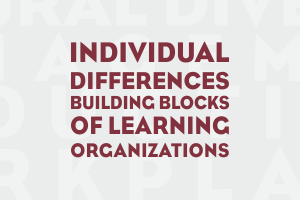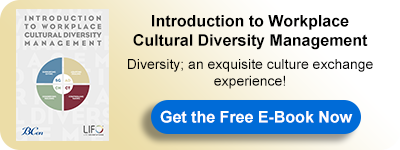Individual Differences: Building Blocks of Learning Organizations

Understanding individual differences is crucial to creating learning organizations. According to Senge, a learning organization is a place, in which people “continuously deploy their capabilities, fulfill their true targets, in which new ways of thinking are supported and new common hopes are delivered. Unlike traditional, controlled organizations, learning organizations are not rigid in nature; they focus on promoting and nurturing employees’ creativity and innovation in order to survive in today’s dynamic environment. Competition, technological advancement and mobility of resources are forcing companies to step out of the traditional process oriented models followed in the past. Today, successful companies know that their value in the market will remain as long as they focus on developing systems that foster the growth and development of their employees. Organizations learn only through individuals who learn. Individual learning does not guarantee organizational learning. But without it no organization learning occurs.*
Importance of understanding individual differences
To build organizations that can prosper and grow, more focus has been given to employee observation and assessment. Most managers have come to the conclusion that the key to developing well-functioning teams is through understanding individual differences. Differences in personality traits and behavior may result in employees behaving differently in similar work environments and in return reaching different results. Employees are shaped by different factors including age, ethnicity, gender and physical attributes. Not to mention, that individuals in the workplace may differ in their response to emotions, motivation and peer pressure. Identifying the personality and need of each individual in the work place will allow managers to create extraordinary results. Intelligent managers who are not able to develop a full functioning team where employees complete one another are no longer considered valuable assets on their own. As quoted by Senge “How is it possible, that a team of engaged managers, which have an individual intelligence quotient of over 120, only have a collective IQ of 63?” The answer to this question lies truly in the understanding of people and team management.
Some tools for understanding individual differences are:
- Myers-Briggs
- DISC
- HEXACO Model
- LIFO Methods
*The Fifth Discipline, Peter M.Senge, 2004
For more about this topic, download our latest book "Introduction to Workplace Cultural Diversity Management" for FREE:
